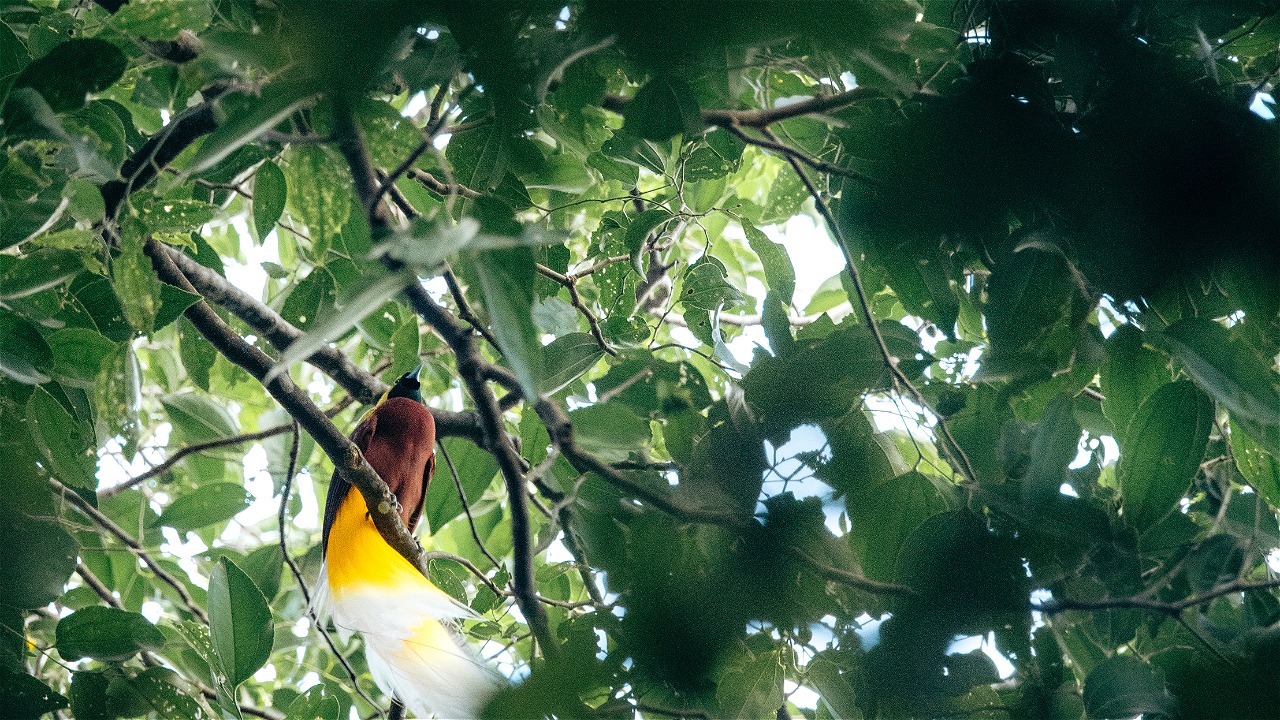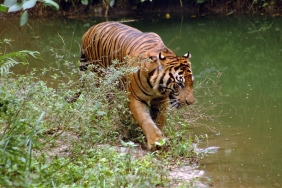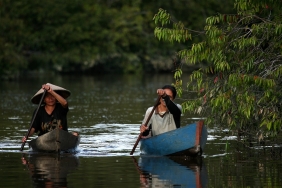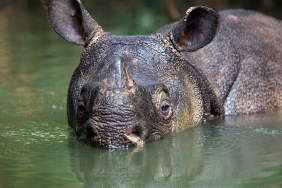ANIMAL CONSERVATION BOOK FOR ECOSYSTEM BALANCE
Indonesia has the largest Muslim majority in the world. Based on data reported by the mapsofworld.com website, Indonesia ranks first as a country with a Muslim population, or 13.1 percent of the entire population in the world. This data shows that the approach to nature conservation through Islamic wisdom is chosen as a method to raise awareness of wildlife conservation. This is because protected wildlife distribution sites are generally located in pockets where Muslim communities hold their beliefs strongly. This can be done through informal community leaders, such as religious or traditional leaders who are respected at the grassroots level. This book can serve as a reference for Islamic religious leaders in the region, to spread the message that protecting protected wildlife can be a field of practice to lead to eternal paradise, and this is in line with the teachings of Islam.
Based on this, the Indonesian Ulema Council issued Fatwa No. 14/2014 on the Conservation of Rare Animals for Ecosystem Balance. This fatwa was issued on January 22, 2014 and signed by the Chairman of the Fatwa Commission of the Indonesian Ulema Council, Prof. Dr. H. Hasanuddin AF, MA and the Secretary of the Fatwa Commission of the Indonesian Ulema Council, Dr. HM. Asrorun Ni'am Sholeh, MA.
Fatwa No.14/2014 on Rare Animal Preservation for Ecosystem Balance contains the idea of protecting and preserving rare animals, both protected and unprotected, living in the wild or captive, having small populations and their populations in nature are declining drastically, and require preservation efforts to prevent extinction. This fatwa is made to prevent the extinction of species caused by various threats experienced by animals and can lead to extinction, where the extinction of the species will disrupt the balance of the ecosystem that must be maintained.< br />
This fatwa also contains recommendations addressed to the government, legislative bodies, local governments, business actors, religious leaders, and the wider community. The recommendations recommend that we take steps to protect and conserve endangered animals to prevent extinction. These measures include: Conduct effective supervision and review of spatial planning and rationalization of forest areas to avoid conflict with communities and prioritize the improvement of forest area functions; Review permits granted to companies that are detrimental, both in terms of ecological, social, economic, community culture, history, and objective conditions of the area, and threaten the extinction of rare animals; Conducting critical land restoration and collaborative forest conservation by involving community participation; Encouraging educational institutions to raise awareness of the importance of rare animal protection; Enforcing the law against anyone who threatens the preservation of rare animals and perpetrators of crimes in the forestry sector, especially illegal logging and illegal animal trade.
The existence of living things with all their functions is an indication of the power of God Almighty with all his creations. Every living thing has meaning and is not something that is in vain. Therefore, the Indonesian Ulema Council in its fatwa considers that every living creature has the right to continue its life and be utilized for benefit. MUI states that the law of treating animals well, protecting and preserving them is obligatory for all humans.
The involvement of all parties is needed to preserve and maintain the balance of the ecosystem. Religion is an effective approach to be chosen as a method of socialization and education, which can be used to influence people to want to preserve animals and prevent species extinction. With the existence of Fatwa No. 14/2014 on Rare Animal Conservation for Ecosystem Balance, the role of religious leaders is important to contribute to animal conservation efforts and prevent species extinction, as well as maintain ecosystem balance. If all parties can play their roles well, then the hope to preserve animals and balance the ecosystem can be realized.





